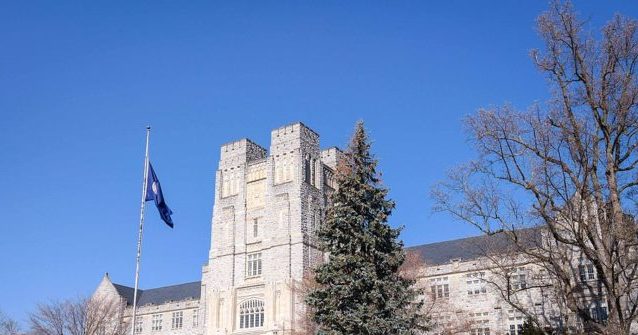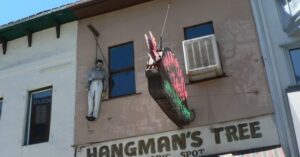Free speech advocacy organization Speech First has filed a lawsuit against Virginia Polytechnic Institute and State University — better known as Virginia Tech — over its campus censorship protocols, including ‘bias-response teams’ and ‘speech codes,’ both of which play roles in the management of speech outlined by Virginia Tech’s broader discourse-regulating framework.
The lawsuit’s section on “bias-response teams” appears to be the primary focus of the organization, and is also an area where Speech First has found legal success at other colleges. According to the organization, the “Orwellian” teams “encourage students to monitor each others’ speech and report incidents of ‘bias.’” Thereafter, the “bias-response teams” will “log the incident, investigate it… attempt to reeducate the ‘offender,’ and can recommend formal or informal discipline.” One of the foremost concerns with disciplining “bias” is that the label can be used “based solely on the listener’s subjective reaction” to speech.
Universities across the country have begun halting their “bias response team” protocols, either voluntarily or as the result of a lawsuit, because, as the U.S. Court of Appeals for the Sixth Circuit found of the University of Michigan’s program, the “referral power lurks in the background” and “act[ed] by way of implicit threat of punishment and intimidation to quell speech.” The Fifth Circuit found that the University of Texas at Austin’s program “represented the clenched fist in the velvet glove of student speech regulation.”
Similarly, the University of Northern Colorado closed their “bias response team” policy, as they said it came “at the expense of free speech and academic freedom,” while the University of Iowa found the teams have a “high failure rate” and “become almost punitive.”
According to a survey done by the Foundation for Individual Rights in Education (FIRE), 42 percent of students believe their university would seek retributive action if they made a controversial statement.
Speech First is targeting four separate censorship policies enforced by Virginia Tech: discriminatory-harassment, computer usage (including network usage), bias-related incidents, and “informational activities.” The organization contends that the definitions for each category and the conduct that triggers the enforcement of the policies are “vague, overbroad restriction[s] on protected speech that is incompatible with the First and Fourteenth Amendments.”
According to FIRE, speech codes are “university regulations prohibiting expression that would be constitutionally protected in society at large.” Indeed, as the lawsuit argues, citing another case, “The mere dissemination of ideas — no matter how offensive to good taste — on a state university campus may not be shut off in the name alone of ‘conventions of decency.’”
Virginia Tech’s discriminatory-harassment policy targets students who engage in:
[I]nappropriate conduct that is based upon a person’s age, color, disability, gender (including pregnancy), gender identity, gender expression, national origin, political affiliation, race, religion, sexual orientation, or veteran status and unreasonably interferes with the person’s work or academic performance or participation in university activities, or creates a working or learning environment that a reasonable person would find hostile, threatening, or intimidating.
According to the school, however, students can be reprimanded for “telling unwelcome jokes about someone’s identity.” In addition, “even when the University ‘determines that adjudication is not appropriate,’” it can still recommend that students “participate in an educational conversation about the concerns raised in the complaint.”
The Virginia Tech Code of Conduct states that students who “anticipate or observe a violation of university policy are expected to remove themselves from participation and are encouraged to report the violation.”
The school’s computer usage policy “applies to the use of any computing or communications device, regardless of ownership, while connected to the University network…” and bans the use of such devices for “partisan political purposes.” While a Virginia Tech student could use the school’s network to advocate for Black Lives Matter, for example, they could not use the same network to advocate for a specific political candidate.
Virginia Tech’s “bias-related incident protocol” monitors “words or actions that contradict the spirit of [the University’s] Principles of Community.” The university actively “encourage[s]” students to report fellow students if they “hear or see something that feels like a bias incident statement or expression.”
Speech First alleges that Virginia Tech’s “continuous promotion” of the ‘bias’ reporting system has led to students finding ‘bias’:
The University’s continuous promotion of its bias-incident reporting system has had an effect. Twenty-nine bias-incident complaints were filed in in Spring 2017. That number increased to 35 in Fall 2017, 37 reports in Spring 2018, and 52 reports in Fall 2018.
The university’s “informational activities” policy requires students file for and obtain “prior written authorization” before participating in activities such as “the distribution of literature and/or petitioning for signatures.” Students who are not members of “university-affiliated organizations” are forbidden from filing for “prior written authorization” in the first place. Speech First alleges that this policy amounts to a “prior restraint” on protected First Amendment activity.
This lawsuit comes as a judge recently ruled a First Amendment case against the University of Virginia may proceed.
The case is Speech First, Inc. v. Sands and has been assigned to Chief Judge Michael F. Urbanski in the U.S. District Court for the Western District of Virginia.






